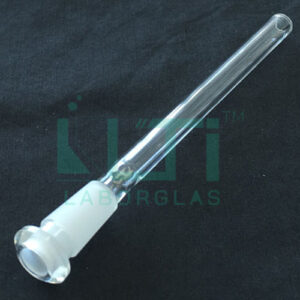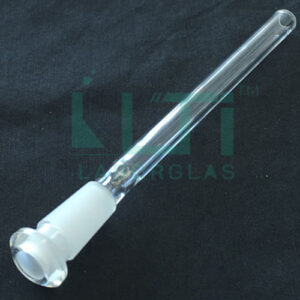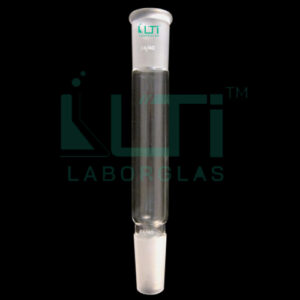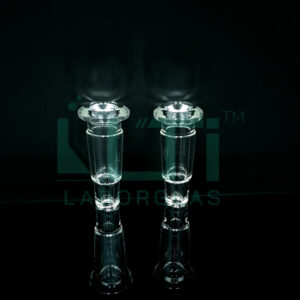- Complies with DIN/ISO 3507
- With Individual Work Certificate
- With Teflon stopper
| PART No. | Capacity (ml) | Tolerance (±ml) | PACK Qty. |
| 5150-10 | 10 | 1 | 2 |
| 5150-25 | 25 | 2 | 2 |
| 5150-50 | 50 | 3 | 2 |
| 5150-100 | 100 | 3 | 2 |
Here are some common uses of Pycnometers calibrated as Class A using the Gay-Lussac method:
- Density Determination:
- Pycnometers are primarily used for determining the density of liquids. The Gay-Lussac method involves filling the pycnometer with a known volume of liquid at a known temperature and measuring the mass of the liquid. This information is then used to calculate the density of the liquid.
- Quality Control in Industries:
- Pycnometers calibrated to Class A standards are often used in quality control laboratories, particularly in industries such as pharmaceuticals, chemicals, and beverages, where precise measurement of liquid density is critical for ensuring product quality.
- Experimental Research:
- In scientific research, especially in fields like chemistry and materials science, Pycnometers are used to determine the density of liquids as part of various experiments and investigations.
- Material Characterization:
- Pycnometry is a valuable technique for characterizing materials, and Class A calibrated Pycnometers are employed when high accuracy and precision in density measurements are required.
- Calibration of Instruments:
- Pycnometers themselves are calibrated to a high level of accuracy, and they can be used as reference standards for calibrating other density measurement instruments or methods.
- Volume Calibration:
- Pycnometers can be used for the calibration of volumetric glassware, helping to ensure the accuracy of other laboratory equipment used for liquid measurement.
- Standard Reference in Laboratories:
- Class A calibrated Pycnometers are often used as standard reference equipment in laboratories where accurate density measurements are routine, ensuring the traceability of measurements to recognized standards.
- Density-Volume Relationships:
- Pycnometry allows scientists and researchers to establish relationships between density and volume, providing valuable insights into the physical properties of liquids.
- Educational Purposes:
- Pycnometers are used in educational laboratories to teach students about the principles of density measurement and the calibration of laboratory equipment.





